- Browse
- Html 5
HTML5 Courses
HTML5 courses can help you learn web page structure, multimedia integration, responsive design, and semantic markup. You can build skills in creating interactive elements, optimizing user experience, and implementing APIs for enhanced functionality. Many courses introduce tools like code editors, version control systems, and frameworks that streamline the development process, allowing you to apply your skills in real projects and collaborate effectively with other developers.
Popular HTML5 Courses and Certifications
 Status: Free TrialFree TrialU
Status: Free TrialFree TrialUUniversity of Michigan
Skills you'll gain: Hypertext Markup Language (HTML), Web Design, Web Content Accessibility Guidelines, Web Design and Development, Usability, Semantic Web, Cascading Style Sheets (CSS), Cloud Hosting, Web Servers, Data Validation, File Transfer Protocol (FTP)
4.7·Rating, 4.7 out of 5 stars28K reviewsBeginner · Course · 1 - 4 Weeks
 Status: Free TrialFree Trial
Status: Free TrialFree TrialSkills you'll gain: Responsive Web Design, Cascading Style Sheets (CSS), Web Development, Javascript, Bootstrap (Front-End Framework), Scripting, Browser Compatibility, Application Programming Interface (API), Back-End Web Development
4.4·Rating, 4.4 out of 5 stars797 reviewsBeginner · Course · 1 - 4 Weeks
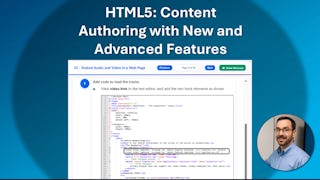 Status: NewNewStatus: PreviewPreviewL
Status: NewNewStatus: PreviewPreviewLLogical Operations
Skills you'll gain: Web Content Accessibility Guidelines, HTML and CSS, Cascading Style Sheets (CSS), Responsive Web Design, Browser Compatibility, Hypertext Markup Language (HTML), Web Content, Web Design and Development, Animations, Front-End Web Development, Web Applications, Web Development, Web Design, Typography, Javascript, Software Design, Software Development
Mixed · Course · 1 - 3 Months
 Status: NewNewStatus: Free TrialFree TrialL
Status: NewNewStatus: Free TrialFree TrialLLogical Operations
Skills you'll gain: Responsive Web Design, Cascading Style Sheets (CSS), Hypertext Markup Language (HTML), HTML and CSS, Web Development Tools, Web Development, Javascript, JavaScript Frameworks, Web Content, Web Servers, Browser Compatibility, Web Design and Development, Web Analytics and SEO, Web Design, Front-End Web Development, Web Applications, Apache, Development Environment, Semantic Web, Software Development
Beginner · Specialization · 3 - 6 Months
 Status: Free TrialFree Trial
Status: Free TrialFree TrialSkills you'll gain: Responsive Web Design, Cascading Style Sheets (CSS), HTML and CSS, Bootstrap (Front-End Framework), Debugging, UI Components, Front-End Web Development, Semantic Web, Hypertext Markup Language (HTML), Browser Compatibility, Web Content Accessibility Guidelines, Web Analytics and SEO, User Interface (UI), Development Testing, Data Validation, Javascript, Animations
4.7·Rating, 4.7 out of 5 stars1.9K reviewsBeginner · Course · 1 - 4 Weeks
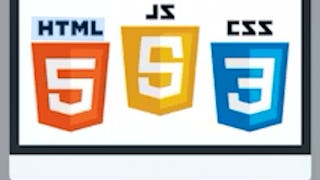 Status: Free TrialFree TrialJ
Status: Free TrialFree TrialJJohns Hopkins University
Skills you'll gain: HTML and CSS, Cascading Style Sheets (CSS), Ajax, Javascript, Responsive Web Design, Front-End Web Development, Web Design, Bootstrap (Front-End Framework), Development Environment, Web Development, Web Development Tools, Web Design and Development, JSON, Web Applications, Web Content Accessibility Guidelines, Scripting, Browser Compatibility, Hypertext Markup Language (HTML), Object Oriented Programming (OOP), Event-Driven Programming
4.7·Rating, 4.7 out of 5 stars17K reviewsBeginner · Specialization · 1 - 3 Months
What brings you to Coursera today?
 Status: PreviewPreviewU
Status: PreviewPreviewUUniversity of Michigan
Skills you'll gain: Hypertext Markup Language (HTML), Web Development Tools, Web Content Accessibility Guidelines, Web Design and Development, Web Design, Front-End Web Development, Usability, Semantic Web, Cascading Style Sheets (CSS), Web Servers
4.9·Rating, 4.9 out of 5 stars24 reviewsMixed · Course · 1 - 4 Weeks
 Status: Free TrialFree TrialU
Status: Free TrialFree TrialUUniversity of Michigan
Skills you'll gain: Wireframing, Responsive Web Design, HTML and CSS, Web Content Accessibility Guidelines, Cascading Style Sheets (CSS), Web Design, Hypertext Markup Language (HTML), Browser Compatibility, Bootstrap (Front-End Framework), Web Design and Development, Javascript, Front-End Web Development, User Interface (UI), Verification And Validation, Web Development, Interactive Design, Usability, Event-Driven Programming, User Interface (UI) Design, Web Development Tools
4.7·Rating, 4.7 out of 5 stars35K reviewsBeginner · Specialization · 3 - 6 Months
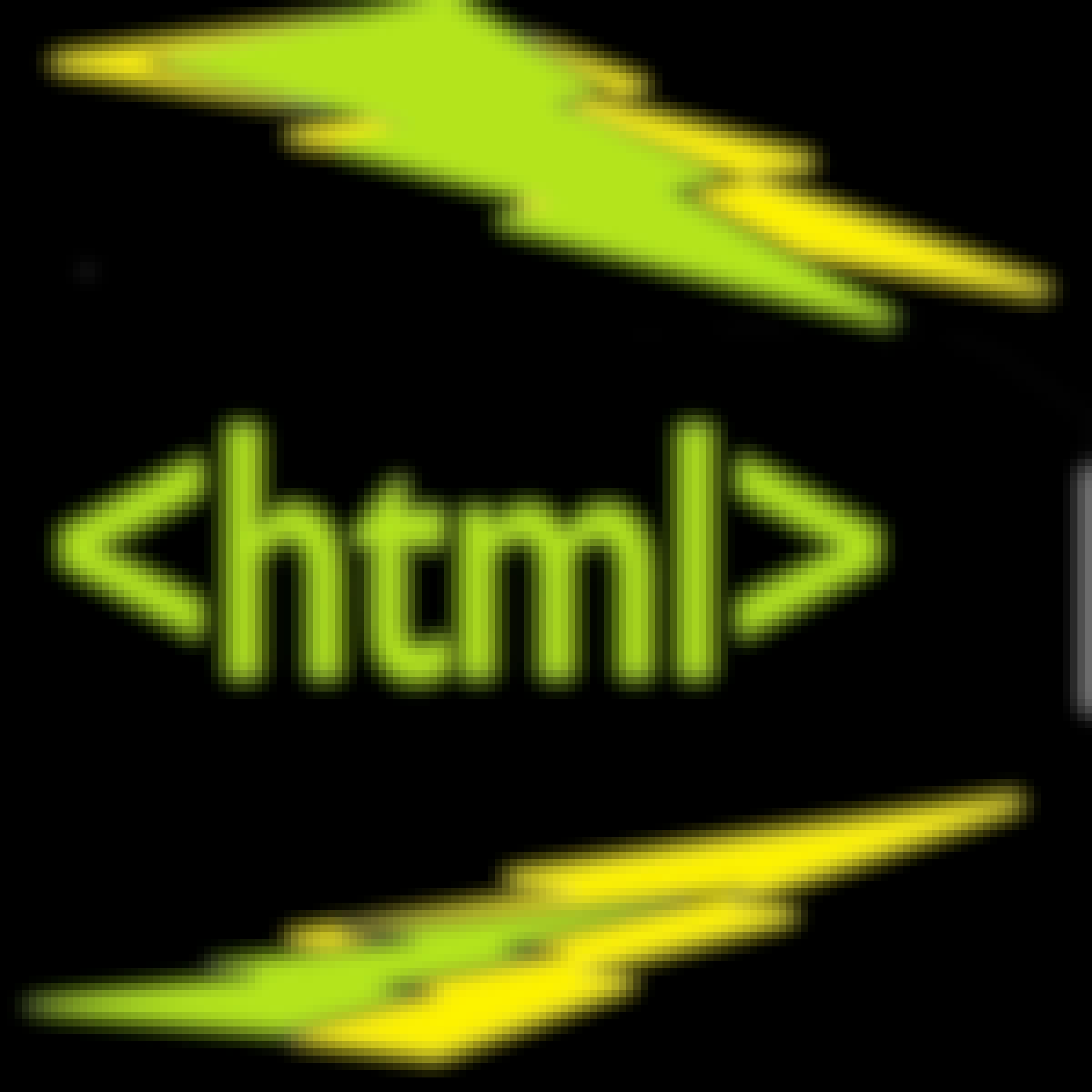 C
CCoursera
Skills you'll gain: Hypertext Markup Language (HTML), Front-End Web Development, Web Design and Development, Web Development, Web Development Tools, Web Applications, Web Content, Integrated Development Environments
4.6·Rating, 4.6 out of 5 stars2.2K reviewsBeginner · Guided Project · Less Than 2 Hours
 Status: PreviewPreviewU
Status: PreviewPreviewUUniversity of Michigan
Skills you'll gain: Hypertext Markup Language (HTML), Web Content Accessibility Guidelines, HTML and CSS, Web Design, Web Design and Development, Semantic Web, Usability, Web Applications, Programming Principles, Web Content, Verification And Validation
4.6·Rating, 4.6 out of 5 stars49 reviewsMixed · Course · 1 - 4 Weeks
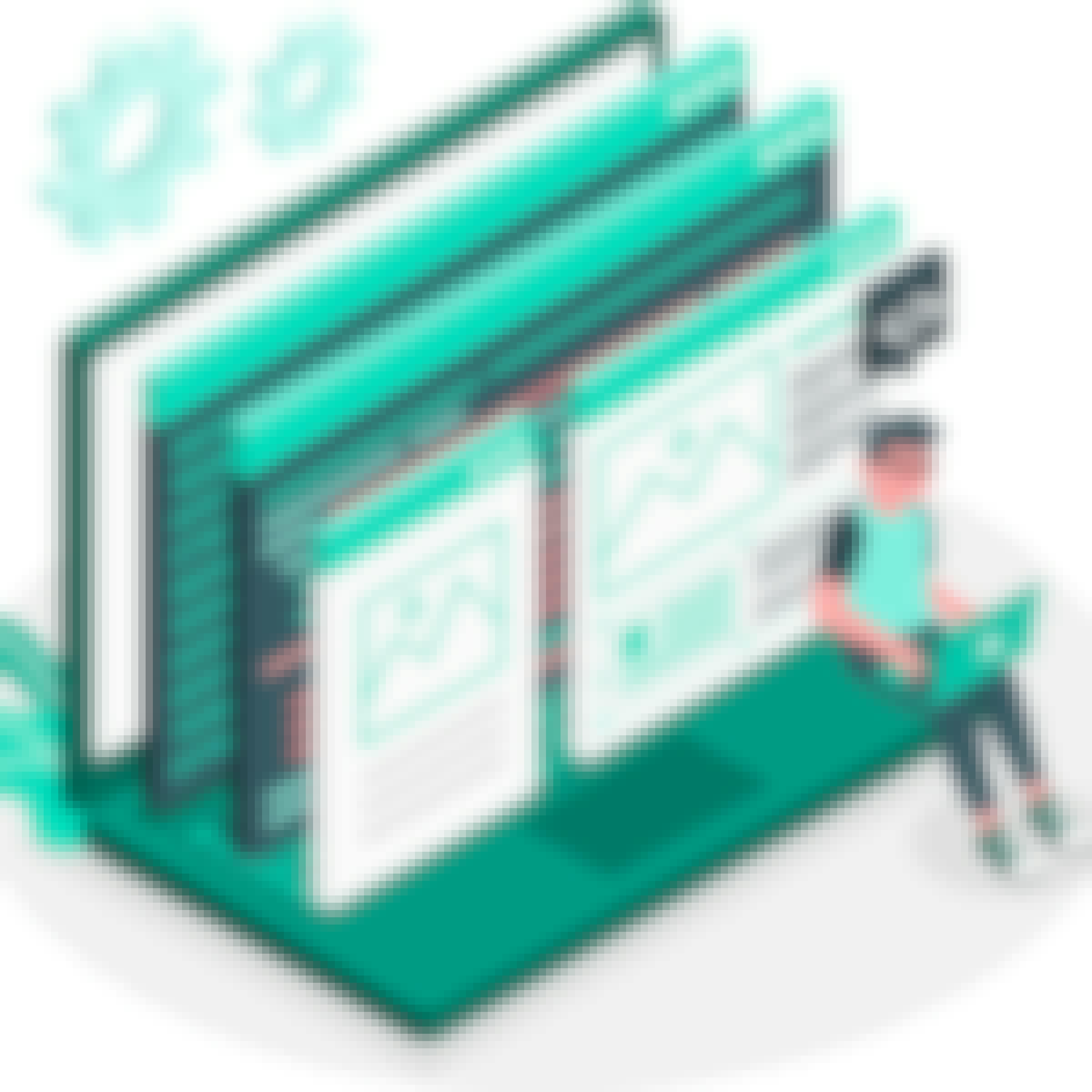 Status: Free TrialFree Trial
Status: Free TrialFree TrialSkills you'll gain: HTML and CSS, Hypertext Markup Language (HTML), Cascading Style Sheets (CSS), Web Development Tools, Web Design and Development, Web Design, Web Development, Front-End Web Development, Semantic Web, Integrated Development Environments
3.1·Rating, 3.1 out of 5 stars37 reviewsBeginner · Course · 1 - 4 Weeks
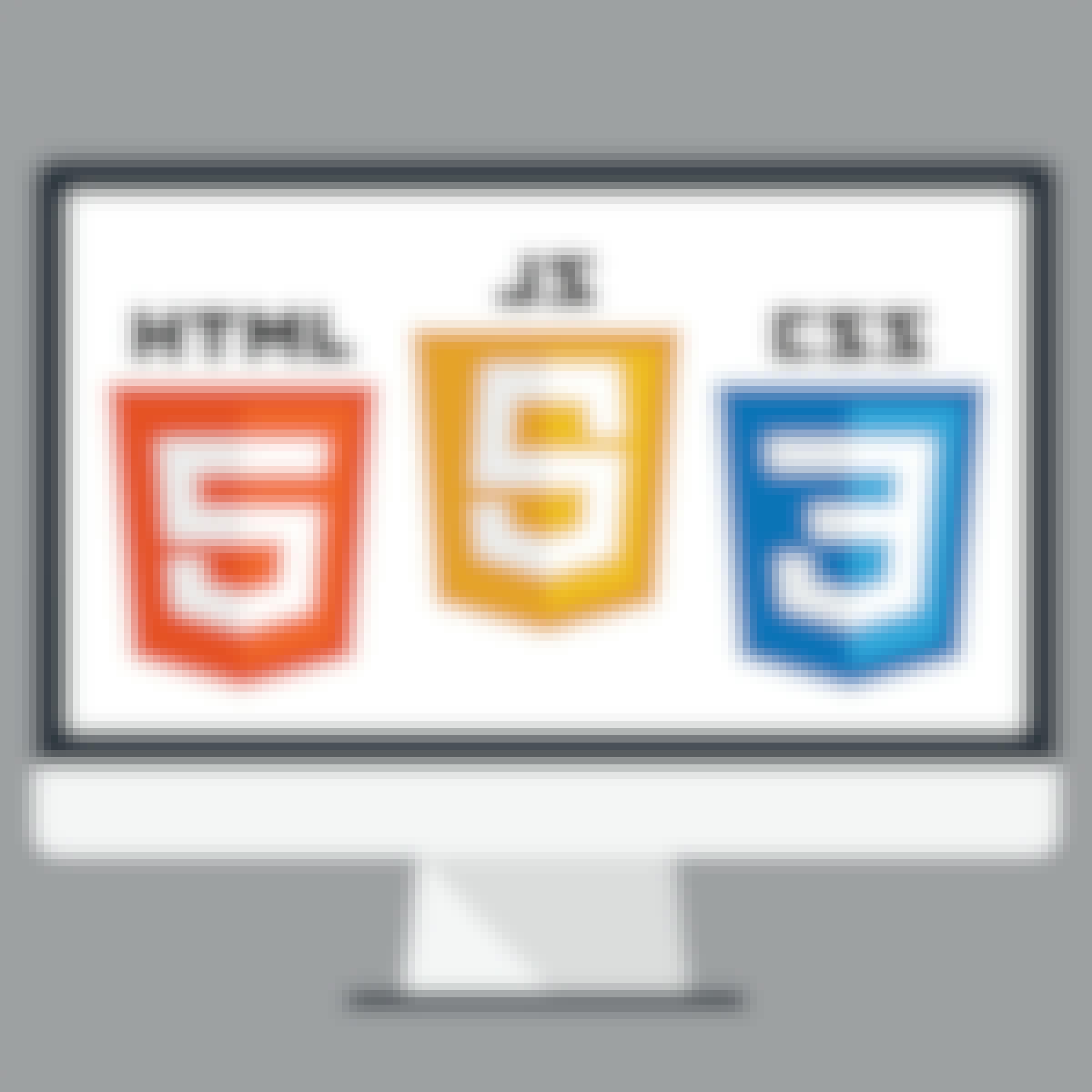 Status: Free TrialFree TrialJ
Status: Free TrialFree TrialJJohns Hopkins University
Skills you'll gain: HTML and CSS, Ajax, Javascript, Responsive Web Design, Front-End Web Development, Web Design, Web Applications, Cascading Style Sheets (CSS), Development Environment, Web Development Tools, Web Content Accessibility Guidelines
4.7·Rating, 4.7 out of 5 stars17K reviewsMixed · Course · 1 - 4 Weeks
In summary, here are 10 of our most popular html5 courses
- Introduction to HTML5: University of Michigan
- Introduction to HTML, CSS, & JavaScript: IBM
- HTML5: Content Authoring with New and Advanced Features: Logical Operations
- Web Development with HTML5, CSS, and JavaScript: Logical Operations
- HTML and CSS in depth: Meta
- HTML, CSS, and Javascript for Web Developers: Johns Hopkins University
- Введение в HTML5: University of Michigan
- Web Design for Everybody: Basics of Web Development & Coding: University of Michigan
- Introduction to HTML: Coursera
- Introducción al HTML5: University of Michigan
Frequently Asked Questions about Html 5
HTML5 is the latest version of the Hypertext Markup Language, which is the standard language used to create and design web pages. It is important because it provides a more efficient and flexible way to structure content on the web, enabling developers to create interactive and multimedia-rich applications. HTML5 introduces new elements and attributes that enhance the functionality of web pages, making them more user-friendly and accessible across various devices. This evolution in web technology supports the growing demand for responsive design and improved user experiences.
With skills in HTML5, you can pursue various job opportunities in the tech industry. Common roles include web developer, front-end developer, UI/UX designer, and web application developer. Many companies seek professionals who can create responsive and visually appealing websites, making HTML5 expertise a valuable asset. Additionally, positions in digital marketing and content creation often require a solid understanding of HTML5 to optimize web content effectively.
To learn HTML5 effectively, you should focus on several key skills. First, understanding the basic structure of HTML documents is essential. Familiarity with new HTML5 elements, such as <article>, <section>, and <canvas>, is also crucial. Additionally, learning CSS for styling and JavaScript for interactivity will enhance your web development capabilities. Knowledge of responsive design principles and accessibility standards will further empower you to create inclusive web experiences.
There are numerous online courses available to learn HTML5. Some of the best options include the Introduction to HTML5 course, which covers the fundamentals, and the Modern HTML5 & Responsive Web Development Mastery Specialization, which offers a comprehensive approach to mastering HTML5 and responsive design. Additionally, the Build & Optimize Responsive Websites with HTML5 & Bootstrap course provides practical skills for creating modern web applications.
Yes. You can start learning HTML5 on Coursera for free in two ways:
- Preview the first module of many HTML5 courses at no cost. This includes video lessons, readings, graded assignments, and Coursera Coach (where available).
- Start a 7-day free trial for Specializations or Coursera Plus. This gives you full access to all course content across eligible programs within the timeframe of your trial.
If you want to keep learning, earn a certificate in HTML5, or unlock full course access after the preview or trial, you can upgrade or apply for financial aid.
To learn HTML5, start by exploring online courses that provide structured content and hands-on projects. Begin with the basics of HTML and gradually progress to more advanced topics. Practice by building simple web pages and gradually incorporate CSS and JavaScript to enhance functionality. Engaging in community forums or study groups can also provide support and motivation as you learn.
HTML5 courses typically cover a range of topics, including the structure of HTML documents, new HTML5 elements, forms and input types, multimedia integration (audio and video), and the use of APIs for enhanced functionality. Additionally, courses often address responsive design principles, accessibility best practices, and the integration of CSS and JavaScript to create dynamic web applications.
For training and upskilling employees, courses like the Developing Responsive Web Pages Using HTML5 and CSS3 are excellent choices. These courses focus on practical skills that can be directly applied in the workplace, helping teams create modern and responsive web applications. Investing in such training can enhance overall productivity and keep your workforce updated with the latest web technologies.










